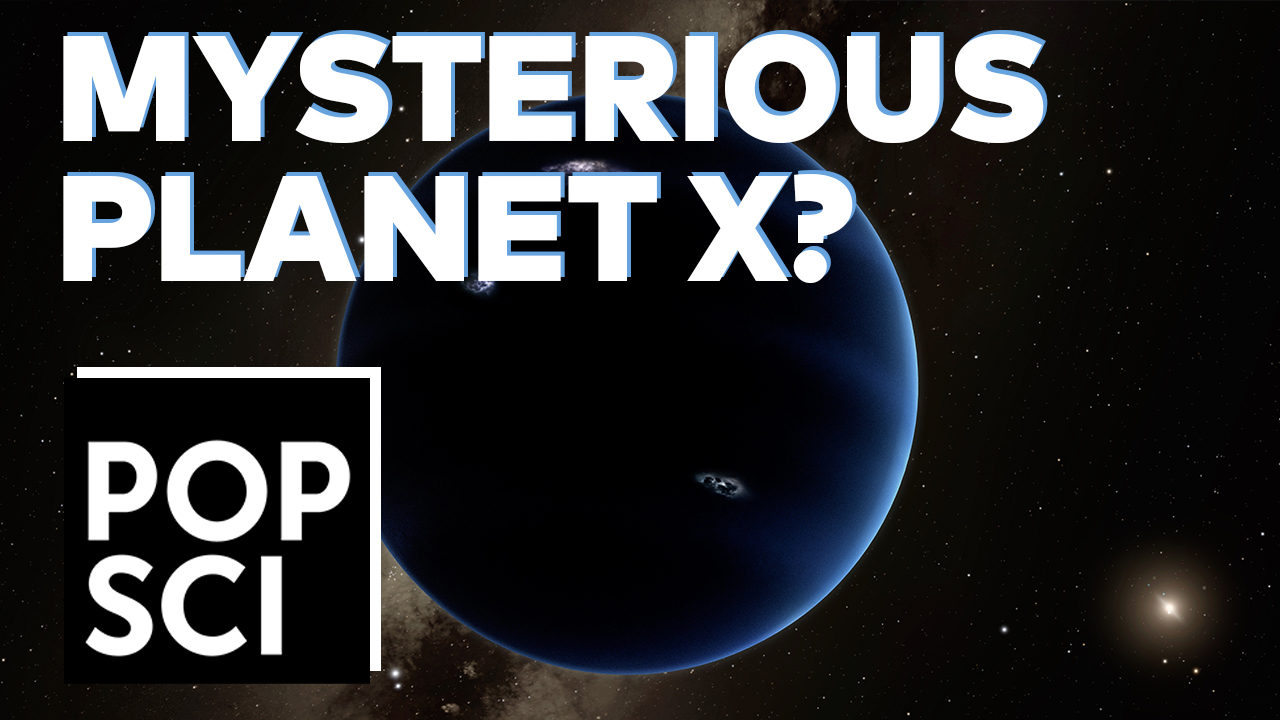


Below is the script for the video above. If you want, give it a watch. If you want the info without the sound, read on. Also, while we have you, why don’t you subscribe to Popular Science on YouTube?
In 2006, Pluto was reclassified as a “dwarf planet.” This had two main effects on our solar system: it reduced the number of recognized planets to eight, and left many Earthlings very sad. But Pluto’s demotion reignited a conversation that scientists have had since Neptune’s discovery: is there a “Planet X” orbiting the Sun that we don’t yet know about?
In December 2018, astronomers announced they’d found the most distant object ever to be observed in our solar system. They’re unofficially calling the giant ice ball, “Farout,” and it is three times farther from the Sun than Pluto.
But before you get your hopes up and add an ‘F’ to your planetary mnemonic device, there are two things you need to remember: (1) Farout has a diameter of about 300 miles, so at best, it’s a dwarf planet, and (2) the name “Farout” hasn’t been adopted by the International Astronomical Union.
The IAU, among other things, decides the official names of stellar objects, including planetary features, exoplanets, and stars. But there’s no precedent for naming a planet in our solar system—the IAU has never done it before.
There are five worlds visible in the night sky to the naked eye—Mercury, Venus, Mars, Jupiter and Saturn. All named, of course, for Greek and Roman gods.
Millenia before the IAU formally adopted those names for the planets, Babylonians first tracked the path of Venus, which they associated with the goddess Ishtar.
Other ancient cultures also had their own names for the planets—the Norse named Jupiter after their god Thor—and many modern cultures have names for the planets in their own language
Uranus and Neptune continued the tradition of naming planets for Greek and Roman deities, but naming conventions were not yet set. Uranus almost ended up as “Herschel” (after its discoverer) or worse, “George’s Star,” after Herschel’s patron King George III. Neptune was almost Le Verrier, after the man who is credited with predicting its existence and position in the sky.
The IAU’s suggestions aren’t enforceable by law. Like it says on their website, they simply “establish conventions that are meant to help our understanding of astronomical objects and processes.” Basically, they want to make sure everyone is on the same page when it comes to space.
That’s why buying a star, part of the Moon, or an exoplanet is a waste of money, because you and the person you bought the gift for (who would rather have had the cash) will be the only ones on Earth to recognize that particular name.
So how will the IAU select a name for Planet X for not only the scientific community, but the whole world? There is a formal process, because even in space, bureaucracy exists. Members of the IAU believe it will go something like this:
Once a ninth world is discovered orbiting the Sun, the discoverer suggests a name to the heads of two groups within the IAU: the Working Group for Planetary System Nomenclature and the Working Group for Small Bodies Nomenclature. They must agree on a single name, (which let’s face it, will probably be a Roman or Greek god.)
The heads of the two working groups return to their respective committees and further discuss and debate. Among the things they consider is how does a name sound in languages other English? Is it offensive to a people or culture? Does it comply with naming conventions? If and when both working groups approve and agree on a name, it moves forward.
Here’s where it gets complicated, because no one knows what happens next. The proposed name might then go to the president of the IAU for consideration. It might simply go to a vote of the full body of the IAU. Or, maybe, the IAU will rely on its working groups—but probably not, because who wouldn’t want to help name a planet? But once the majority agrees and no one finds fault with a name, only then does it get assigned to Planet Nine.
So what are the chances that Farout will keep its name? Pretty far out (unless there’s a Greek or Roman god we don’t know about named Farout.)
For more, check out the video, above. You can also subscribe to Popular Science on YouTube.
